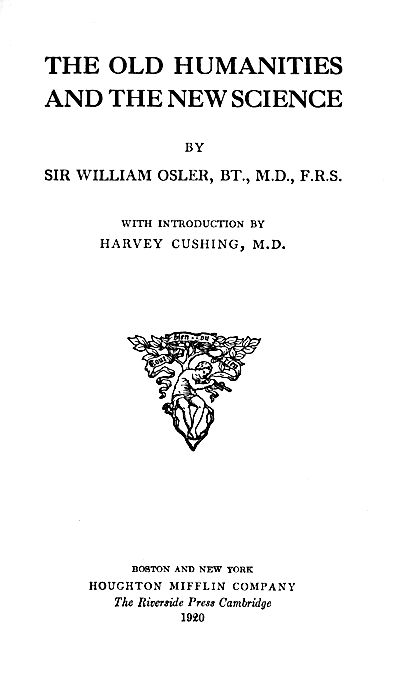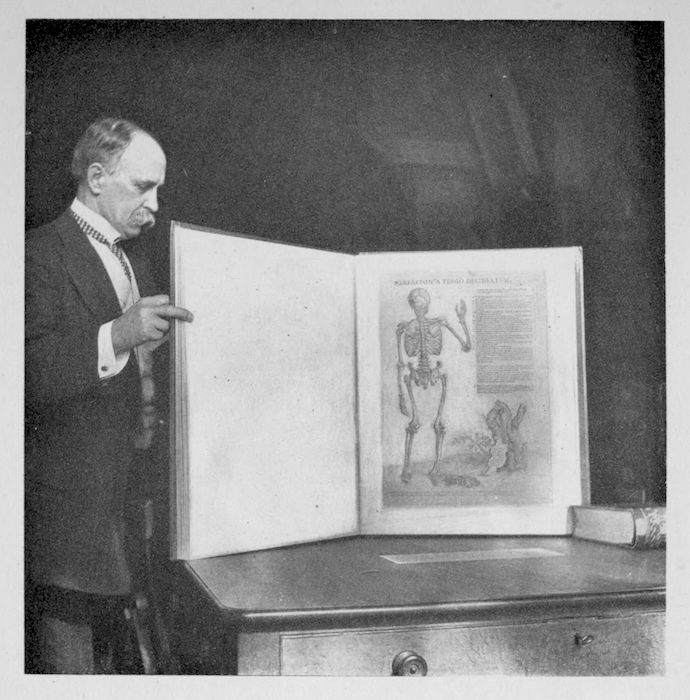
THE OLD HUMANITIES AND
THE NEW SCIENCE

PRESIDENTIAL ADDRESS
TO THE CLASSICAL ASSOCIATION
MAY 16, 1919

COPYRIGHT, 1920, BY HOUGHTON MIFFLIN COMPANY
ALL RIGHTS RESERVED
INTRODUCTION
In writing a prefatory note to an Americanreprint of this notable address thereare three things to consider—the writer,his subject, and the occasion. The greatlybeloved author had a multitude of friendsin all lands, and far abler pens have writtenmuch concerning him during the past twelvemonths. The subject is one of no less momenton this side of the Atlantic than to thosein older countries who concern themselveswith scholarship and education, thoughhere the classicists are having a particularlyhard struggle to retain in our academies,schools, and colleges a proper footing forthe ancient languages and learning termed"the humanities." The circumstances underwhich the address was given are lessfamiliar in this country than the authorand his subject, for we as yet have no corresponding[pg vi]organization, or at least nonewith such an ambitious programme. Consequentlyit is appropriate that this noteshould dwell chiefly upon the occasion.
The Classical Association, composed ofa large body of university men, teachers,and schoolmasters, with local branches inseveral places in Great Britain and her colonies,was established in 1904 with thisobject:
To promote the development and maintain thewell-being of classical studies and in particular:
(a) To impress upon public opinion the claim ofsuch studies to an eminent place in the nationalscheme of education;
(b) To improve the practice of classical teachingby free discussion of its scope and methods;
(c) To encourage investigation and call attentionto new discoveries;
(d) To create opportunities for friendly intercourseand co-operation among all lovers ofclassical learning in this country.
That Sir William Osler should have beenchosen to preside over such an assembly of[pg vii]British scholars is no matter for surprise,for though a humanist in the broad senseof the te
